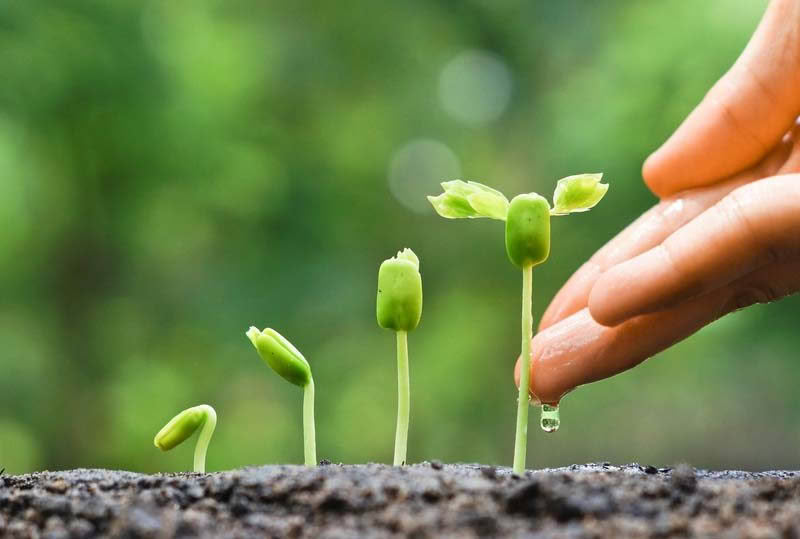10 tips for growing good seedling transplants

You can save yourself a lot of money growing your own plants from seed, but getting them to transplant size can be frustrating.
Words: Nadene Hall
1. If you choose to start seed early for your area, make sure you use a good quality, porous growing medium that is free of disease pathogens – a ready-made mix is probably easiest. Fill new or used (disinfected) seed trays or pots with your chosen mix to about 3cm from the top. Make sure the medium is moist and only lightly firmed.
2. Fine seed can be sown in a tray then the seedling transplanted to a pot, while larger seed can be put into separate pots. With fine seeds, sow onto the surface, then lightly pressed into the medium. Larger seeds should be sown at a depth of 1-2 times their diameter, and you can put 2-3 seeds in each pot.
3. A seed tray or pots will need to be watered often to keep the medium moist (but not wet). The easiest way to do this is to put the tray and/or pots into water and the water soak up, rather than overhead water. Alternatively use a mister bottle.
4. Once trays/pots are sown, cover with plastic wrap or a clear plastic bag, but poke some holes in it to allow for air circulation. Place in a brightly lit area, but not in direct sunshine – it needs to be around 21-24ºC for good germination for most seeds.* Once plants have germinated, remove the plastic and move trays/pots to a slightly cooler area. The best way to ensure your seedlings get the amount of light they need is to use a fluorescent light suspended above trays (about 5-10cm above).
* Different seeds of different plants will require different treatments to get the optimum germination rate. Make sure you check the seed pack for instructions.
5. Transplant seedlings once the second pair of “true” leaves has appeared. Cull weaker seedlings in pots by snipping off with sharp scissors. The ideal seedling is short, stocky and dark green.
6. Don’t let soil dry out – keep it watered. That said, don’t drown them either.
7. Keep air circulating – this helps keep seedlings healthy, plus it helps prepare the plant for outdoor air movement. If you don’t have moving air, use a small fan to create a gentle breeze.
8. Fertilise weekly with a houseplant fertiliser but water it down to about 1:4.
9. Harden plants off before taking them out to their eventual growing area. If you are using cold frames, you can do this by slowly increasing the time the lids are left open. If you have them inside the house, try putting them out the back door in a sunny but sheltered spot for 7-10 days before planting. Bring them inside at night.
10. Transplant seedlings during a cooler part of the day, and water well to avoid wilting, which can be fatal to the newly transplanted seedling. If it’s very hot and sunny in the days after transplanting, consider temporary shade for your transplants for 2-3 days.
Love this story? Subscribe now!
 This article first appeared in NZ Lifestyle Block Magazine.
This article first appeared in NZ Lifestyle Block Magazine.
